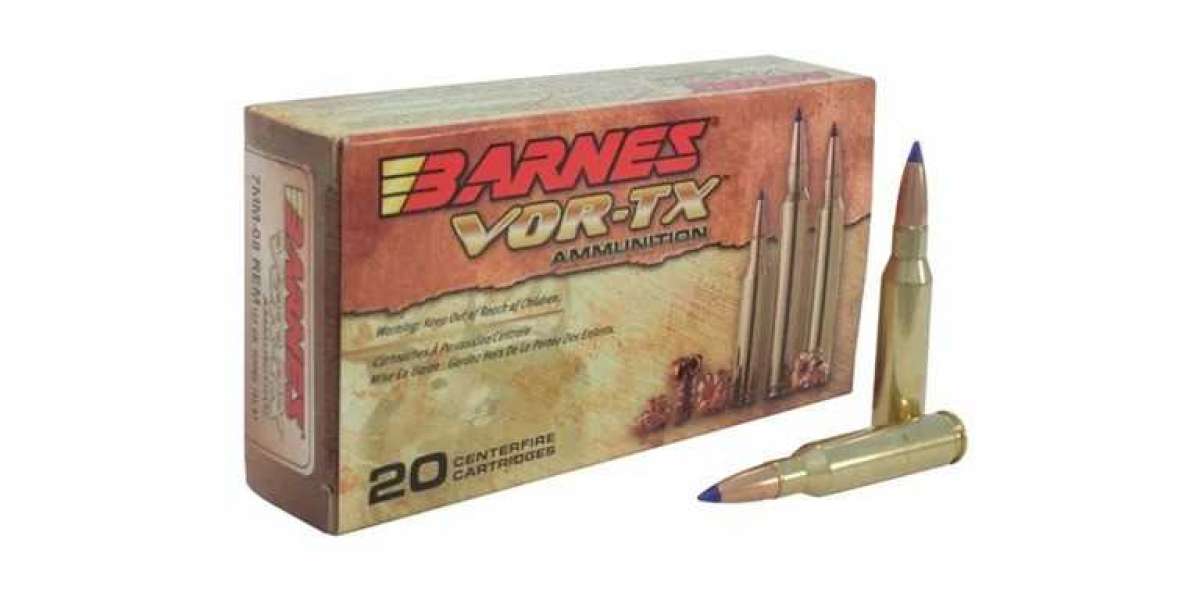The 7mm 08 ammo is a highly versatile and popular cartridge known for its excellent balance of power, accuracy, and manageable recoil. Whether you are a hunter looking to take down game efficiently or a precision shooter seeking consistent performance, selecting the right grain weight for your ammunition is crucial. The grain weight of a bullet impacts various factors, including trajectory, velocity, penetration, and energy transfer. Understanding these elements will help you make an informed decision when choosing the ideal bullet weight for your shooting needs.
Understanding Grain Weight and Its Impact
Grain weight refers to the mass of the bullet, measured in grains, where one grain is equivalent to approximately 1/7000th of a pound. In the context of 7mm 08 ammo, bullet weights typically range from 120 grains to 175 grains. The choice of grain weight significantly influences the bullet’s performance in terms of speed, energy, and stopping power. Lighter bullets travel faster and have a flatter trajectory, while heavier bullets provide deeper penetration and greater retained energy upon impact.
Best Grain Weights for Hunting Applications
When using 7mm 08 ammo for hunting, choosing the right bullet weight depends on the size of the game you are pursuing. For smaller to medium-sized game such as deer or antelope, bullet weights in the 120 to 140-grain range are ideal. These bullets offer high velocity and sufficient expansion to ensure quick and ethical kills. If you are hunting larger game like elk or black bear, opting for heavier bullets in the 150 to 175-grain range provides better penetration and energy transfer, ensuring a clean and humane harvest.
Grain Weight Considerations for Target Shooting
For target shooters who prioritize accuracy and consistency, the grain weight of their 7mm 08 ammo plays a crucial role. Lighter bullets, around 120 to 140 grains, are often preferred for their flatter trajectory and minimal recoil, making them suitable for long-range target shooting. Heavier bullets, typically in the 150 to 168-grain range, can provide greater stability in windy conditions, ensuring precision at extended distances. The choice ultimately depends on individual shooting style and environmental factors.
Velocity and Ballistic Performance
The velocity of a bullet is directly affected by its grain weight. Lighter bullets, such as 120-grain options, tend to achieve higher velocities, often exceeding 3,000 feet per second (fps). This results in a flatter trajectory, making them well-suited for long-range shooting. On the other hand, heavier bullets, like those in the 160 to 175-grain range, have lower velocities but retain more energy downrange, ensuring deeper penetration and better stopping power. Understanding the trade-offs between speed and energy retention will help you select the best grain weight for your specific shooting needs.
Recoil Management and Comfort
Recoil is an important consideration, especially for shooters who spend extended time in the field or at the range. Lighter grain bullets generally produce less recoil, making them more comfortable to shoot over long periods. This is particularly beneficial for younger or less experienced shooters who may struggle with the kick of heavier rounds. However, for experienced shooters who require superior stopping power, heavier bullets remain a viable option despite the increased recoil. Finding a balance between performance and comfort is key when choosing the right grain weight.
Choosing the Right Grain Weight for Your Needs
Ultimately, selecting the right grain weight for your 7mm 08 ammo depends on your intended use. If you prioritize high velocity and minimal recoil, lighter bullets in the 120 to 140-grain range are optimal. For deep penetration and higher retained energy, especially for hunting larger game, heavier bullets in the 150 to 175-grain range are preferable. Testing different grain weights and understanding how they perform in various conditions will help you make an informed decision that aligns with your shooting goals.






